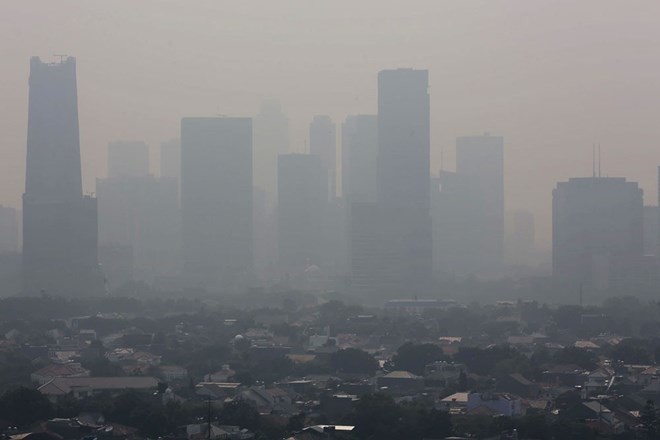
According to the air sensor results, throughout 2018, only 11 days in Jakarta had “good” air quality. The rest were moderate (86 days), unhealthy for sensitive groups (130 days) and unhealthy (98 days).
A report by Greenpeace released early this year named Jakarta as the most polluted city in Southeast Asia. Jakarta Governor Anies Baswedan has acknowledged the city’s severe air pollution, and explained that locals in Jakarta tend to focus on politics and fragmentation instead of pressing issues that are related to their own health. Besides, air pollution is much less visible compared to issues of flooding, water pollution and waste, he added.
PM2.5 is one of the most dangerous pollutants with the worst health impact among commonly measured air pollutants. Its small size, up to 2.5 microns, enables it to penetrate deep into the human respiratory system and the entire body. Its common sources include combustion from vehicle engines, industry, wood and coal burning, as well as through other pollutants reacting in the atmosphere.
According to the WHO, each year, about 6.5 million people died early due to air pollution, while over 95 percent of the world population are breathing unhealthy air. Air pollution also causes loss worth US$5 trillion to the world economy.
























